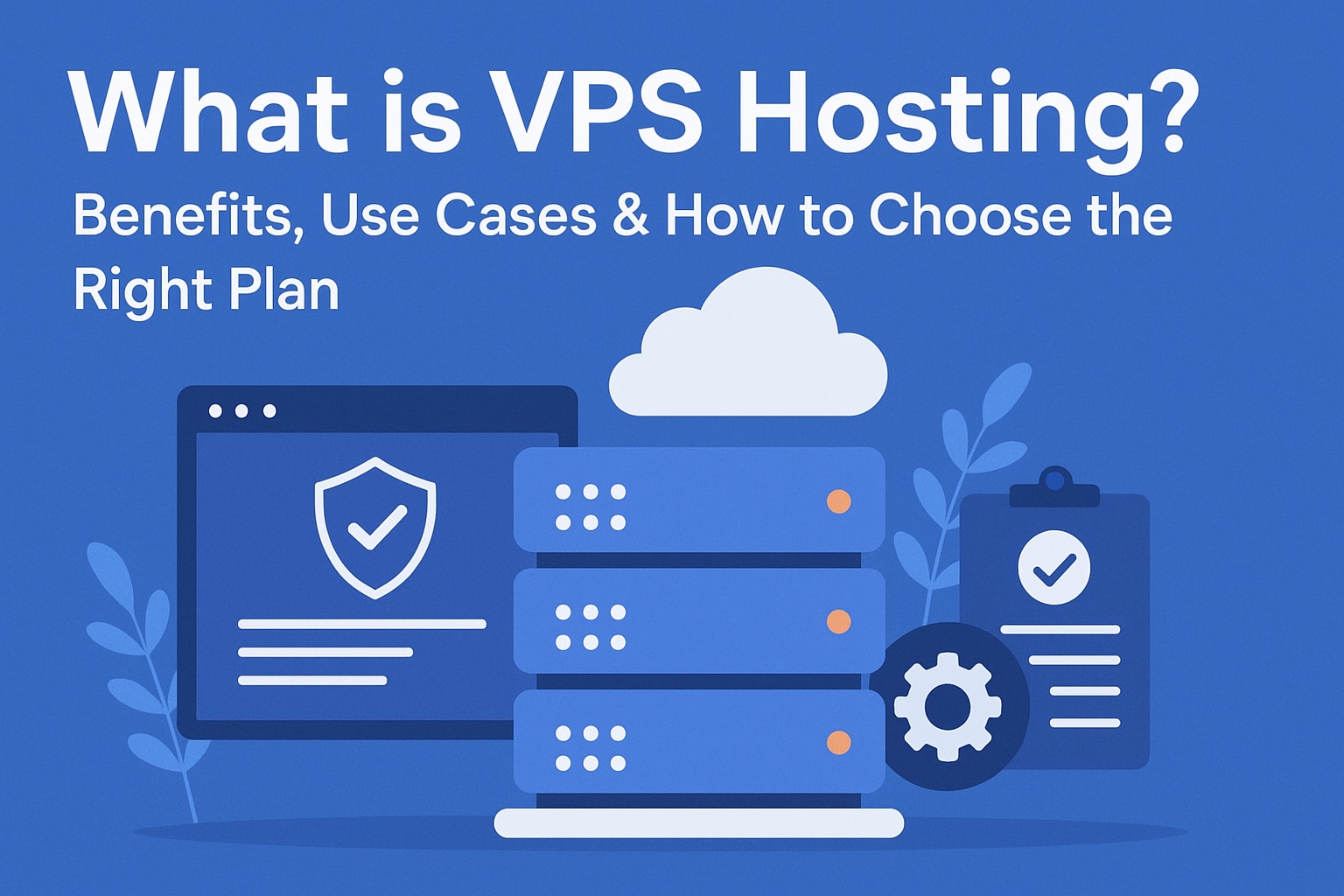Almost 73 percent of U.S. small businesses have a web page, and therefore, good hosting is essential.
What exactly is VPS hosting? It’s like renting a personal apartment in a shared server: you both live in the same builing but have your own dedicated CPU, RAM, and storage. VPS hosting involves the use of virtualization that forms such isolated environments. A hypervisor divides the machine in such a way that each VPS has its own OS and resources.
According to AWS, a VPS simply uses a part of the physical resources the server has, but you have a share of its own. This configuration provides you with similar performance at almost the cost of an actual dedicated server. Actually, 61% of people will leave a site in less than 5 seconds, and therefore, quick hosting services are important.
Benefits of VPS Hosting
VPS combines the cost-effectiveness of shared hosting and most of the advantages of a dedicated server. Key benefits include:
- Improved Performance: Your site receives dedicated resources (CPU, RAM, etc.), thus has a faster and more reliable speed as compared to shared hosting. You do not suffer noisy neighbor bandwidth slowdowns, and many VPSs offer 99%+ uptime.
- Full Control: You have root/admin access, i.e., you can install any software or modify server settings. This is very flexible when it comes to special applications or needs.
- Increased security: Isolation of your data from other users in the same hardware. One can add firewalls and tailored security features without the fear of opening up their files to other people.
- Scalability: The vast majority of VPS plans allow you to add additional RAM, CPU, or storage with little difficulty as your site expands. Begin small and upgrade to larger at any time without interruption.
Simply put, you have the power and ability of a dedicated server without paying the high price, which makes VPS a perfect match with sites that are growing or consuming a lot of resources.
Who Should Use VPS Hosting? (Use Cases)
You might be wondering if you go for vps hosting or not. Here are the details
- Business or E-commerce: VPS is a clever upgrade when shared hosting is not fast and secure enough. The stable, secure environment that VPS offers to online stores involved in payment processing.
- Developers/Testing VPS: It is ideal for the deployment of development servers or staging environments. An example is that startups usually roll out new applications on a VPS to conserve money.
- High-Traffic Applications: Applications that are likely to encounter traffic bursts (ticket sales, events) or have a high load (game servers, media sites) perform much better on VPS.
- Windows or Specialized Software: Do you need Windows apps? Select a Windows VPS (it has Windows licensing). Windows VPS is a bit more expensive.
VPS vs Shared Hosting
Shared hosting is cheap, but not that abundant. In shared hosting, several sites fight over the same server facilities. The spike of one location can slow down those of the rest. A VPS, in turn, provides you with dedicated resources and root access.
The performance of your site will be predictable and not affected in case a neighbor receives a traffic spurt. Practically, VPS hosting provides greater visibility, velocity, and security than shared hosting.
VPS vs Cloud Hosting (VPS or Cloud?)
Virtualization is also applied in cloud hosting, but it is over a network of servers. The data in your site is duplicated on other machines; in case one of the machines goes down, the other takes its place.
This offers leading uptime and customizable scaling. According to IONOS, cloud offers scalability, flexibility, and higher reliability of failover. In comparison, a VPS is a single machine that has one virtual server. It is easier to operate and tends to be cheaper when it comes to consistent traffic since it is not charged per usage.
A VPS flat rate plan can be easier and less expensive than the pay-as-you-go model of cloud in the case of websites that get predictable traffic.
The Best Way to Select a VPS Plan
Look at your particular needs. You should ask yourself: What traffic can I anticipate? What applications/databases (what OS) shall I run? Are the apps intensive? You will also have to determine how you want to host your server; managed (server is maintained by your provider) or unmanaged (server is maintained by yourself).
Choosing the Right Hosting Provider for a lifetime VPS
A good host is equal to the plan. Find providers that have high uptime history (99.9+ SLAs) and have positive customer testimonials. Peruse the additional items they have: daily backups, one-click installers (cPanel, Plesk), security, etc. Ensure that the host has the OS and control panel that you require.
Help is important -The 24/7 assistance could rescue the situation. Make a price comparison and look at the fine print (renewal rates, resource limits).
Beware of gimmicks. Free VPS hosting life advertisements are normally deceiving. Rather, seek free trials or promises. These allow you to try the service without committing.
Wrap-Up
VPS hosting is moderately priced, offering dedicated and customized service. You have dedicated resources, complete control, and enhanced isolation over shared hosting. It is highly compatible with the expansion of small business locations, online stores, and projects that require some stability.
You will provide your site with the strength and stability to perform well by selecting a plan and provider that matches your needs and service requirements based on traffic and software load. Ultimately, VPS hosting is a matter of performance and cost trade-offs to run your site over the long term.
Check out VPS hosting plans that fit your business criteria on hostyd.org!

